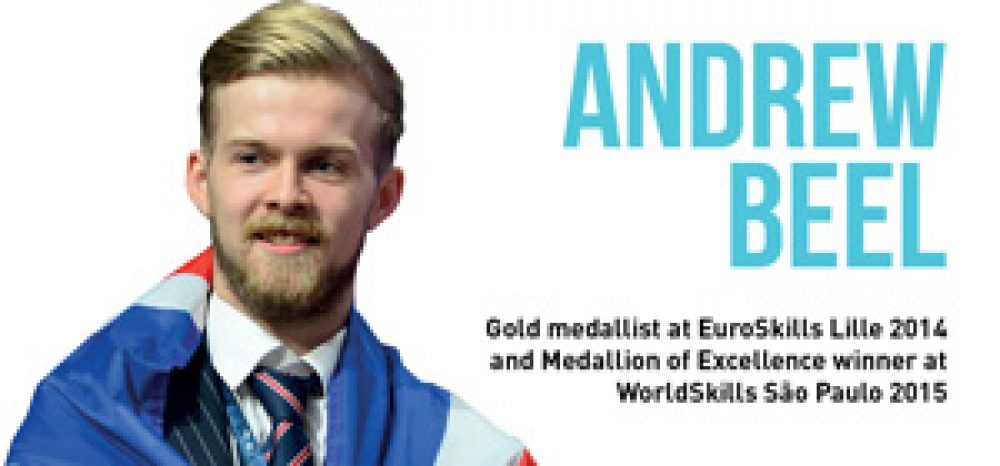Andrew Beel reflects on his happy memories of WorldSkills and provides some good advice for the latest national team for EuroSkills.
After reading the announcement that WorldSkills UK had selected the team to compete at EuroSkills Gothenburg 2016, I admit I felt a little jealous.
As a former competitor, I am always pleased to hear about the next team going forwards to compete, but I wish it was my turn again.
Of course preparing to represent your country on the international stage is not easy.
It was four years of hard work. I spent every spare minute I had training for the international competitions.
Your social life disappears, and for a 20-year-old that is hard to accept, but I wouldn’t change the experience for anything.
Yes, my name wasn’t on the team sheet this week, but I still feel very much part of this team.
As a WorldSkills UK champion, I am working alongside Barry Skea from New College Lanarkshire, who is the UK expert for mechanical engineering CAD (computer aided design), to support the training for Betsy Crosbie.
Betsy, who also attends New College Lanarkshire, is carrying on the college’s tradition of producing Team UK members.
Involving past competitors in the training of Team UK is a key part of the WorldSkills UK comprehensive development programme.
No one understands the demands of competing like we do.
We know how frustrating it is to miss a night out with your mates because you have training the next day.
We know how it feels when a task goes horribly wrong during the competition and most importantly how you can get yourself back on track.
For me, having the support of Ryan Sheridan, who competed with me at WorldSkills London 2011, was invaluable. I hope I can offer the same support.
The majority of Team UK will be under 21 when they compete and many are still in the early stages of their apprenticeship.
It can be daunting telling your new employer that you will need time off to train and compete. That is why I always tell competitors to make sure you take the time to explain to your employers that they will also benefit from the competitions.
I first started competing when I was studying an HNC in computer-aided drafting and design at New College Lanarkshire.
I was told that taking part in skills competitions would be a great addition to my CV and would help me get a job. My lecturer wasn’t wrong.
When I went for an interview at Pacson Valves, where I have now been promoted to mechanical designer, it was my involvement in competitions which led me to develop my skills as a trainee draughtsman that helped me stand out.
Most importantly, Pacson Valves realised the value I could offer the company if I stayed involved.
It can be daunting telling your new employer that you will need time off to train and compete
The new skills I learned as part of my competition training allowed me to develop standard computer-aided design practises for the engineering team at work, improving the efficiency and accuracy of the department.
My last bit of advice to Team UK is to treasure every moment.
For me, standing on the podium clutching my gold medal is a moment I will never forget.
Not only had I beaten competitors from France and the Netherlands, who had been tough competition over the four-day event, to first place, but I had also achieved the highest score of any UK competitor.
Competing opened so many doors for me and that is why I want to stay involved with WorldSkills UK.
As a skills champion, I recently supported the skills pledge campaign encouraging MPs to show their support for apprenticeships, and I hope to visit schools in my local area of Dundee sharing my career experiences with the students.
Who knows whether there might be a future gold medallist amongst them?


Your thoughts